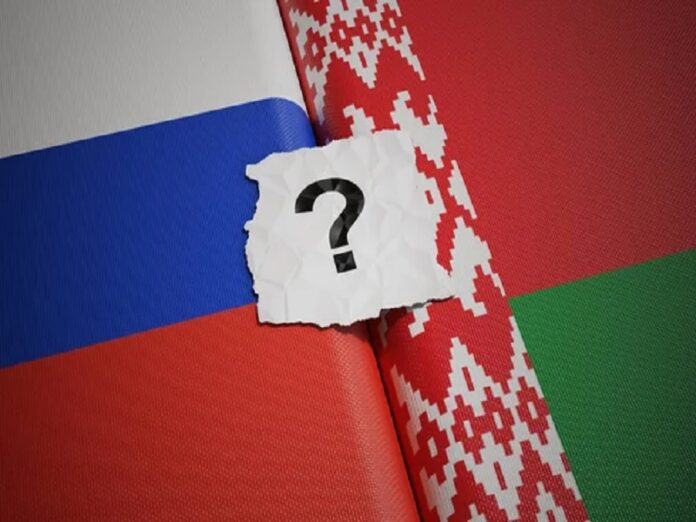Belarusian First Deputy Foreign Minister Sergey Lukashevich made a curious comment in a recent interview with Brazilian media regarding the US-mediated Russian-Ukrainian peace process. He said that “The voice of Belarus should definitely be heard at the negotiating table, and final agreements should also reflect Belarusian interests.” That should have been taken for granted given that Belarus and Russia are mutual defense allies and cooperate within the Union State format so an explanation is required.
One of the scenarios that some have speculated about is that a peace deal in Ukraine could lead to the US scaling back its military presence in the region. This would partially comply with Russia’s request in the run-up to the special operation that the US restore the NATO-Russia Founding Act in the sense of withdrawing its military assets from the former Warsaw Pact countries. In exchange, Russia might scale back its own such presence in Belarus, potentially including its tactical nukes and/or Oreshniks.
Neither the US nor Russia would withdraw all their assets from the region and Belarus respectively, but the recalibrated balance of forces between them could contribute to defusing East-West tensions. The US already wants to redeploy some of its regional assets to Asia for more muscularly containing China, but doing so without Russia even asymmetrically reciprocating in Belarus could backfire if the EU further distances itself from the US in response, ergo the US’ possible interest in this military tango with Russia.
It’s here where the interests of the US and Russia’s closest regional partners, Poland and Belarus, come into play. They don’t want their senior partner to remove any of the assets that have already been deployed on their territory due to their fear that the other side might one day invade. It’s unimportant what observers might think about the validity of these concerns since what matters is that they prefer that no such tango to take place and that only the other side scales back or fully removes their assets.
Accordingly, they’ve each publicly expressed their worries about this scenario, Poland much more explicitly than Belarus. Lukashevich’s curious comment last week was the first known example of this from his side and was also expressed in a much more indirect way than Poland’s worries. Nevertheless, this goes to show that these two countries share similar concerns due to their similar positions in the post-2022 European security system, both presently and foreseeably in the future as well.
Extrapolating on this, since Poland and Belarus are correspondingly the US and Russia’s military vanguards in Central Europe, it makes sense that any grand compromise between their leaders could see them curtail their assets there as a trust-building measure. A return to the NATO-Russia Founding Act is practically impossible nowadays due to Germany’s new permanent military base in Lithuania, however, as well as the prospect of a permanent British base in Estonia and French one in Romania.
Be that as it may, a coordinated withdrawal of some American assets from Poland and Russian assets from Belarus could still go a long way towards defusing East-West tensions due to them being the world’s only two nuclear superpowers and the most powerful military powers in Europe, so it can’t be ruled out. If that happens, then Belarus should trust that Russia will ensure its interests as Moscow has never given Minsk a reason to second-guess this, yet Lukashevich’s curious comment suggests that it has its doubts.
While it can’t be known for sure, it might be that Russia hasn’t kept Belarus in the loop regarding its talks with the US, which wouldn’t be surprising since it’s unrealistic to share updates about every unofficial suggestion that hasn’t yet reached the point of anything serious like might be the case with this scenario. In that event, Lukashevich might have been tasked with indirectly conveying his country’s concerns through the media, possibly with the hope that this could then prompt Russia to clarify any rumors.
To be clear, it’s normal for Belarus to have the worries that were described and for Russia not to have kept it in the loop regarding unofficial suggestions that might have been shared with or by the US, so none of what was written in this analysis should be misinterpreted as implying a growing rift. The same goes for Poland’s selfsame worries and being left out of the loop by the US. It would be contrary to Putin and Trump’s pragmatic approaches for them to let their junior partners have a say in any grand deal.
They aren’t going to sacrifice their vanguards’ interests no matter what regional military terms they might agree to for strengthening the nascent Russian–US “New Détente” since that would put their side at a disadvantage if a hot war between them ever erupts. Belarus and Poland therefore don’t have anything to worry about. Any potentially recalibrated balance of Russian and US forces in Central Europe upon the end of the Ukrainian Conflict will safeguard everyone’s legitimate security interests.







